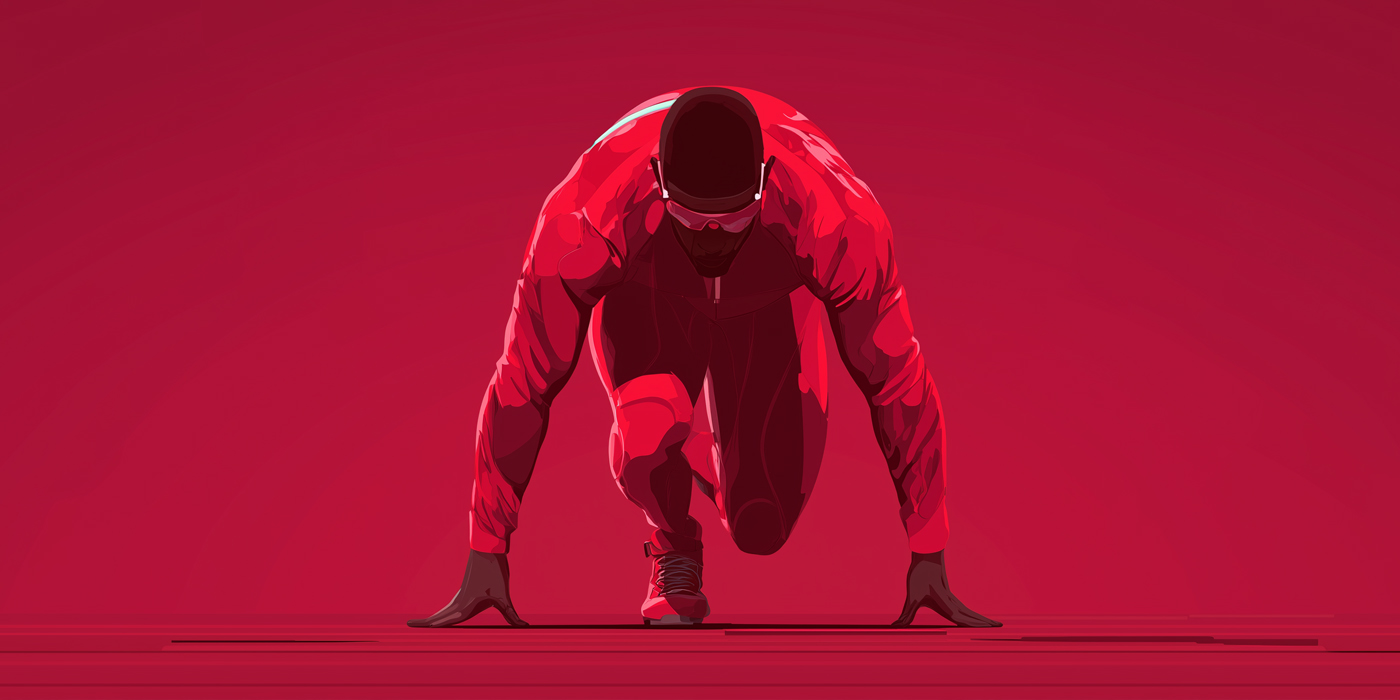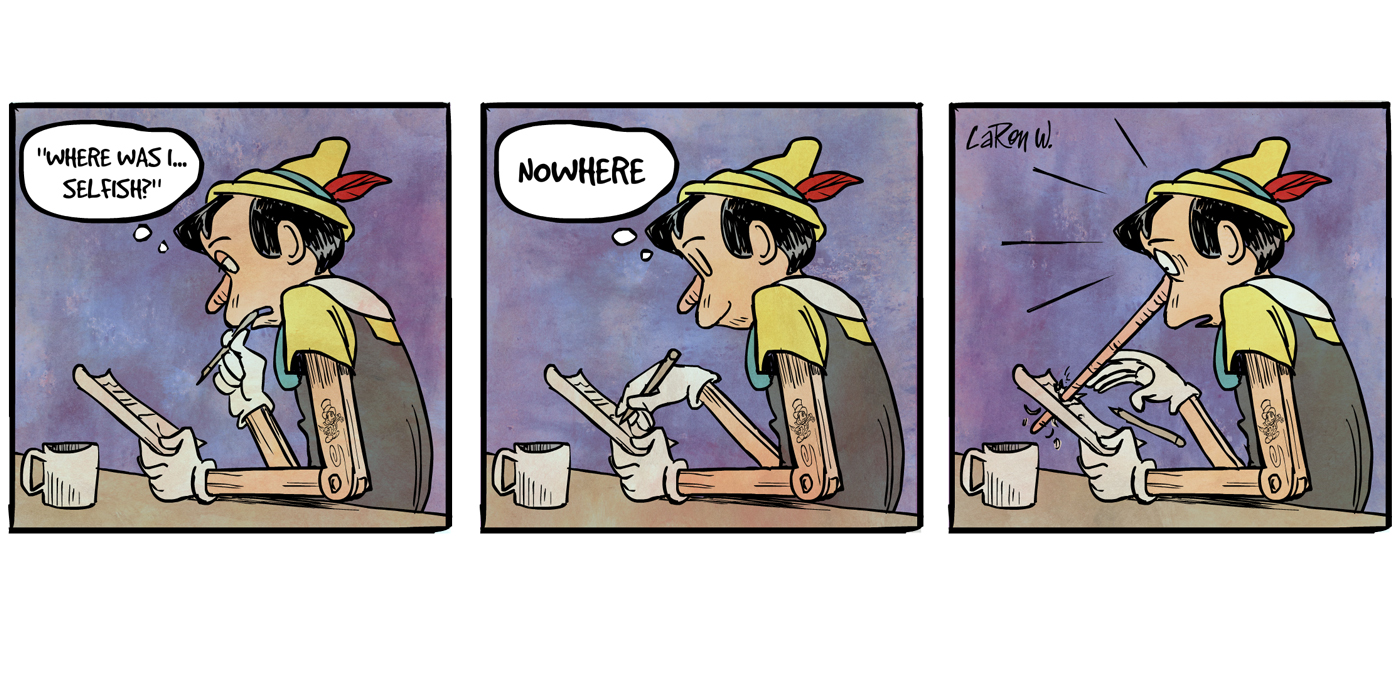The behaviors that brought me into SA were very selfish and self-centered. Even though I’d stacked up a pile of nice-guy actions to justify my abhorrent behaviors, my life was basically all about me and my pleasure. The one person I thought of and whose opinion, satisfaction, and happiness mattered most was me.
As for the impact on my wife—well, what she didn’t know couldn’t hurt her. As for the women I hit on, chased, seduced, or attempted to seduce—their feelings or desires never even entered my mind except as something to be manipulated for my own personal, self-centered ends. Their needs, their lives didn’t matter to me; it was all about me and my needs and my wants. Under a veneer of nice-guy giving, I was a voracious and rapacious monster of taking—endlessly seeking love, romance, sex, affection, or approval to fill up the bottomless pit of dissatisfaction in my soul.
I was full of me, me, me. Involuted, self-centered, and self-involved, my life was about giving myself sexual pleasure without concern for anyone outside myself. Lost in the egocentricity of the first person singular, my life was a mess.
When I came into SA and was confronted squarely with Step One, I began to see my part. My life began to turn around when I was willing to acknowledge that I was a mess and that I was unable to do anything about it. I then acknowledged that I wasn’t the ultimate power in the world, that there might be something more powerful than me.
Notice that I said “something more powerful than me” instead of “God.” For me as a newcomer, the word “God” was a little alarming. Although raised in a mainstream Protestant faith, I considered myself an agnostic—my clever way of hedging all my bets: “Hey, you can’t prove it, you can’t disprove it, who knows?” That was my evasive approach to spirituality. I wanted to believe, but I wanted a sure thing. I want to have faith but I don’t want to look like a sucker. I’d like to have Somebody Up There in charge, but I don’t want to have to do anything. I didn’t want anyone to tell me what to do, and I didn’t want to be answerable for the results.
In order to come to believe, I needed to give up my ruinous self-will. Before, if I had a tough decision or a choice to make, or if I was trying to figure out what would be the best thing to do, I would consult the greatest authority I knew—myself! This is what’s known as a closed system; not a very healthy way to run one’s life. In recovery, I first admit that I am not the ultimate authority (that was a bitter pill to swallow), that there is higher authority.
If I don’t have the answers (and Step One says I don’t), then I have to look elsewhere. For me, one way to understand Step Two is that my Higher Power can be anything—as long as it’s not me! On the ratings list of advisors, my self-serving ego ranks dead last. I need to follow the directions that my Program, my sponsor, and my Higher Power give me.
Having admitted my powerlessness in Step One, and admitted to a Higher Authority in Step Two, I needed to start practicing Step Three. So I finally took the remarkable step (unprecedented for a control freak such as myself) to “turn [my] will and [my] life over to the care” of this More Powerful Something. This turning of my will over to God is the journey from egotism to being other-oriented.
The rest of the journey happens in Steps Four through Twelve. For me, the amends Steps were key. With my sponsor’s help, I made a list of all the people I had harmed (Step Eight), and figured out how I could repair the damage. In Step Nine, I stepped out of the darkness of my self-involvement and paid my debts to the best of my ability. As a result, I no longer need to hang my head and avoid people. I can “lift my head, look the world in the eye, and stand free.”
Some might say that the Spiritual Awakening happens in Step Eleven. And I’d say, “No, it happens in the first Ten Steps.” I didn’t create a conscious contact with God in Step Eleven. This contact with God developed as I worked Steps One through Ten. But in Step Eleven I learn to deliberately listen to God. I learn to use prayer and meditation—talking and listening. When I pray, mainly I pray to be given the understanding of what God wants me to do, and the ability and willingness to carry that out. I’ve learned that one of the keys to recovery is doing God’s will, not my own, and spirituality is God’s will, not my own.
As the Twelfth Step says, if I want what the program offers, I have to give it away, to carry the message to other sexaholics. According to the Promises, “No matter how far down the scale we have gone, we will see how our experience can benefit others” (AA 84). No matter how hurtful, shameful, or criminal the actions and behaviors were that brought me into these rooms, I can use them and my subsequent recovery to give hope to others, and in so doing give meaning and substance to my own life. This I believe is the spiritual awakening: we have been granted knowledge of God’s will for us. For me, God’s will is simply to pass on the wisdom of the program, and give of myself in service to others.
Nick, White Plains, NY






